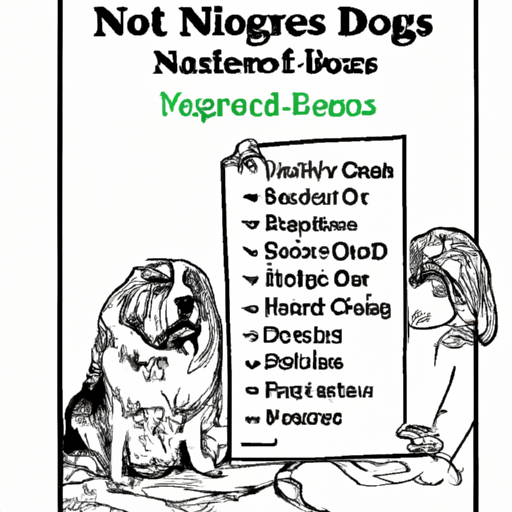As dedicated caregivers to our dogs, it’s essential to understand the dos and don’ts of feeding them vegetables. While many vegetables are beneficial for dogs, there are certain ones that should be kept off their plate. This comprehensive guide will delve into the details about which vegetables are harmful for dogs.
Some Vegetables Are Great But Others Can Be Harmful
Most of us know that vegetables are a great source of vitamins, minerals, and fiber for humans, and the same can be true for dogs. However, not all vegetables are safe for dogs to consume. Some can even be toxic and cause severe health problems. To ensure the safety and health of your furry friend, let’s explore the vegetables that dogs should NOT have.
1. Onions and Garlic
Onions and garlic belong to the Allium family. While they add a zing to our dishes, they can be potentially harmful to dogs. Even small amounts of these can cause damage to a dog’s red blood cells, leading to anemia.
- Onions (all types – white, brown, red, pearl)
- Garlic (also includes garlic powder and some types of cooking oils)
- Leeks
- Chives
These foods contain organosulfides which, when ingested by dogs, can lead to symptoms such as:
- Diarrhea
- Vomiting
- Abdominal pain
- Lethargy
- Rapid breathing
- Elevated heart rate
2. Avocado
Avocado contains a toxin called persin, which can cause dogs to suffer from diarrhea, vomiting and heart congestion. While the highest concentration of persin is in the leaves and pit, it’s best to avoid giving any part of an avocado to dogs.
3. Grapes and Raisins
While technically fruits, it’s important to mention grapes and raisins. Even small amounts can be deadly for dogs. They can cause rapid kidney failure, which can be fatal.
4. Raw Potatoes
Raw potatoes, especially green ones, contain solanine, a toxic chemical which can cause severe issues in dogs including:
- Nervous system disorders
- Respiratory issues
- Digestive problems
Cooked potatoes, on the other hand, are safe and can be a good source of vitamins and minerals for dogs.
5. Mushrooms
Certain types of mushrooms can be toxic to dogs. Store-bought mushrooms intended for human consumption are typically safe, but wild mushrooms can be deadly. It’s best to avoid giving any mushrooms to dogs unless explicitly recommended by a vet.
| Vegetables | Effects |
|---|---|
| Onions and Garlic | Anemia, digestive issues |
| Avocado | Diarrhea, vomiting, heart congestion |
| Grapes and Raisins | Kidney failure |
| Raw Potatoes | Nervous system disorders, respiratory issues, digestive problems |
| Mushrooms | Varying effects, some can be deadly |
FAQs
Q: Can I give my dog vegetables as a treat?
A: Yes, certain vegetables can be a healthy treat for dogs. Just avoid the ones we’ve mentioned in this guide.
Q: My dog ate a small piece of onion. Should I be worried?
A: Even small amounts of onion can be harmful. It’s best to contact your vet immediately if your dog consumed onion.
Q: Is it okay to give my dog cooked potatoes?
A: Yes, cooked potatoes are safe for dogs. However, they should only be given in moderation, as they are high in carbohydrates.
Q: Can dogs eat avocado flesh?
A: While the highest concentration of persin is in the leaves and pit, it’s best to avoid giving any part of an avocado to dogs.
By providing your dog with a diet that is both nutritious and safe, you can ensure they live a long, healthy, and happy life. Always remember to consult with a veterinarian before making significant changes to your dog’s diet.



